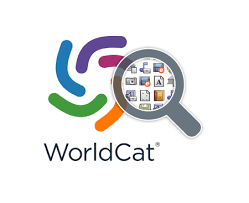Publication Ethics
Publication Ethics
Publication Ethics and Malpractice Statement – IJAS
The Iraqi Journal for Applied Science (IJAS) is committed to maintaining the highest standards of publication ethics and integrity. This statement is based on the Committee on Publication Ethics (COPE) Code of Conduct and Best Practice Guidelines for Journal Editors (2011).
- Editors’ Responsibilities
- Publication Decisions
The Editor-in-Chief holds responsibility for deciding which submitted articles should be published. These decisions are based on the work's originality, scientific value, clarity, and relevance to the journal's scope, without discrimination based on race, gender, ethnicity, religion, nationality, or political belief. - Confidentiality
All manuscripts submitted to IJAS are treated as confidential documents. Editorial staff and reviewers must not disclose information about a manuscript to anyone other than those directly involved in the review and publication process. - Conflicts of Interest
Editors and editorial board members must not use unpublished materials disclosed in a submitted manuscript for their own research without written consent from the author. - Reviewers’ Responsibilities
- Contribution to Editorial Decisions
Peer review assists editors in making publication decisions and helps authors improve their manuscripts. - Confidentiality
Reviewers must treat all manuscripts as confidential and must not share or discuss them with others without the editor’s permission. - Objectivity and Constructive Feedback
Reviews must be conducted objectively. Personal criticism of authors is inappropriate. Reviewers should express their views clearly and support them with evidence. - Acknowledgement of Sources
Reviewers should point out relevant published work not cited in the manuscript. Any substantial similarity with other published material must be reported to the editor. - Conflicts of Interest
Reviewers must decline to review manuscripts in which they have conflicts of interest due to competitive, collaborative, or personal relationships. - Authors’ Responsibilities
- Reporting Standards
Authors must present accurate and original work. Data must be honestly represented, and sufficient detail must be provided to allow replication. - Data Access and Retention
Authors should be prepared to share raw data and retain it for at least ten years, unless legal or privacy concerns prevent sharing. - Originality and Plagiarism
Authors must ensure submitted work is original and properly cites all sources. Submissions found with plagiarism rates exceeding IJAS limits will be rejected.
Plagiarism and AI Use Policy
- Plagiarism must be less than 20%.
- 20–30%: Returned once for correction.
- Above 30%: Rejected permanently.
- From a single source, plagiarism must be below 5%, or <10% to avoid rejection.
- Use of AI-generated content must be ≤25%.
- 25–35% AI use: Returned once for revision.
- ≥35% AI use: Rejected and banned from resubmission.
- Preprints and Database Storage
IJAS does not accept manuscripts previously posted as preprints or that exist in plagiarism-checker databases like Turnitin. - Multiple or Redundant Publication
Authors must not submit the same manuscript to more than one journal. Duplicate submissions will result in rejection. - Authorship
All authors listed must have made a significant contribution to the research. The corresponding author must ensure that all co-authors approve the final manuscript. - Disclosure of Conflicts of Interest
All authors must disclose financial or personal relationships that could influence the research. - Corrections of Errors
Authors must promptly inform the editor if they discover errors in their published work and cooperate to issue corrections or retractions. - Licensing and Copyright
Authors retain copyright and grant the journal the right to publish under a Creative Commons Attribution 4.0 International License (CC BY 4.0). This permits use, distribution, adaptation, and commercial reuse of the work with proper attribution.
https://creativecommons.org/licenses/by/4.0/
Reference
Committee on Publication Ethics (COPE). (2011). Code of Conduct and Best-Practice Guidelines for Journal Editors.
www.publicationethics.org





